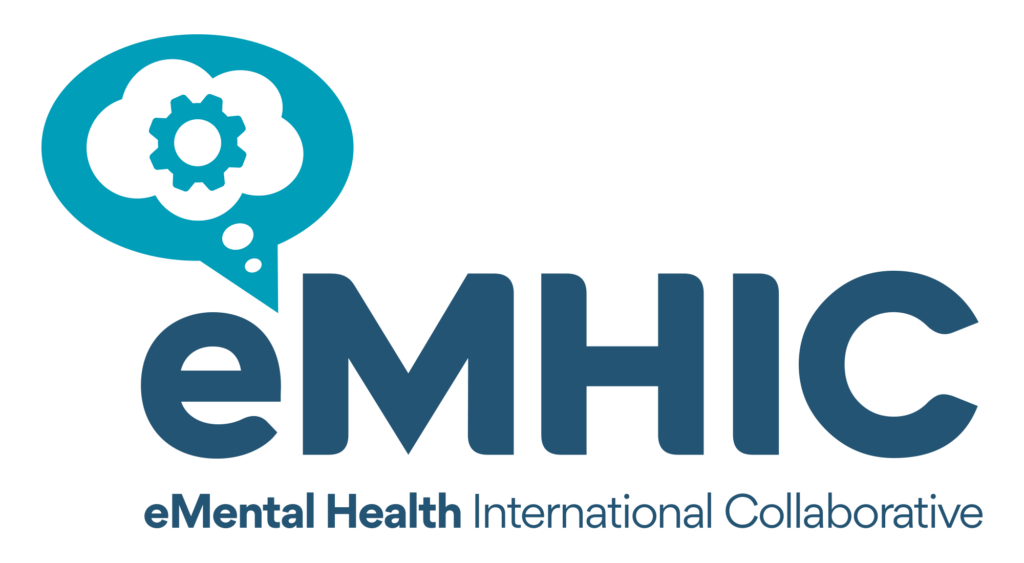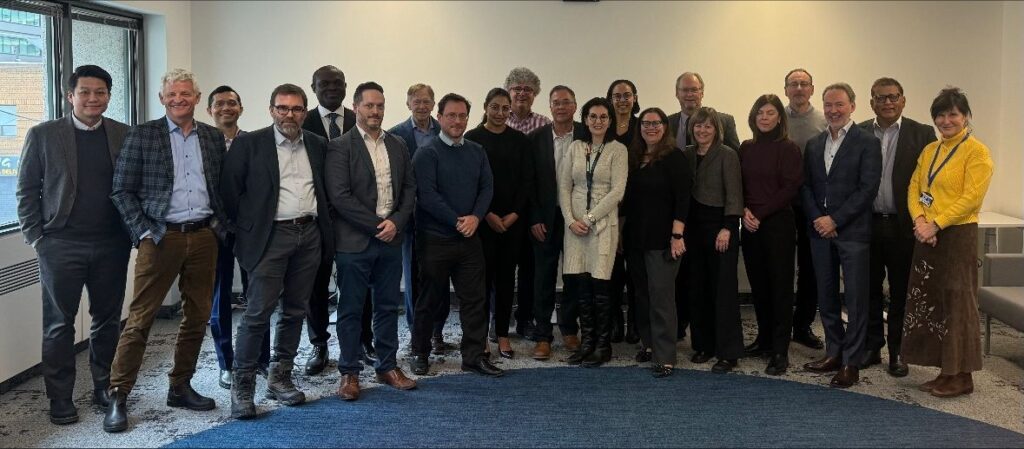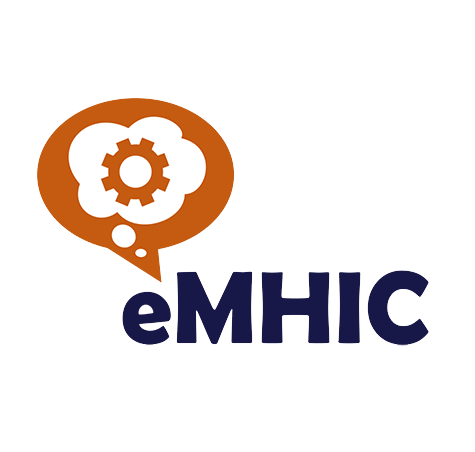eMental Health International Collaborative (eMHIC) hosted a Digital Mental Health Roundtable in Toronto, Canada on Friday 16 Feb 2024 in collaboration with the Mental Health Commission of Canada (MHCC) and Kids Help Phone. Michel Rodrigue (CEO of the MHCC) and Katherine (Kathy) Hay (CEO of Kids Help Phone) provided strong vision, foresight and commitment which ensured the success of the event. The roundtable was also excellently facilitated by passionate champion of digital mental health, Professor Andrew Greenshaw.
The theme of the Roundtable discussion was “Evolving Directions of eMental Health Solution Implementation in Canada” and it was attended by the leading subject matter experts in this niche domain with a clear objective of “getting it right by design” rather than by unplanned evolution. The roundtable discussions were informed by the best practice knowledge about building healthcare systems inclusive of digital mental health integration, real-time data, measurement-based care, frontline workforce engagement & how to fund healthcare technologies sustainably.
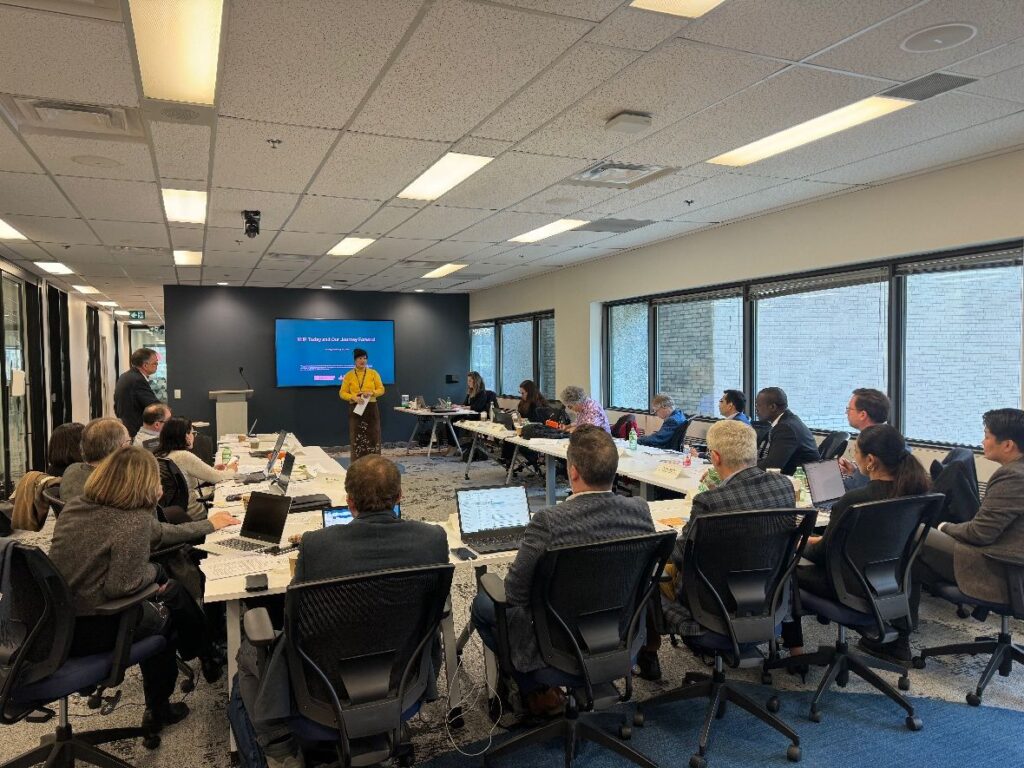
Challenges pertaining to workforce recruitment and retention, stigma, the evolution of social structures following COVID-19, economic pressures, and the impacts of climate change are increasing mental health service demands. This is reflected by the unprecedented pressures on already overburdened traditional modes of service delivery.
Despite existing challenges in improving access to care, support and treatment, Canada is fortunate to be at the forefront of the adoption of digital mental solutions including leading the development of digital mental health accreditation framework and strategy. These range from federally funded programs to provincial government-funded initiatives. eMental Health solution implementation is growing rapidly.
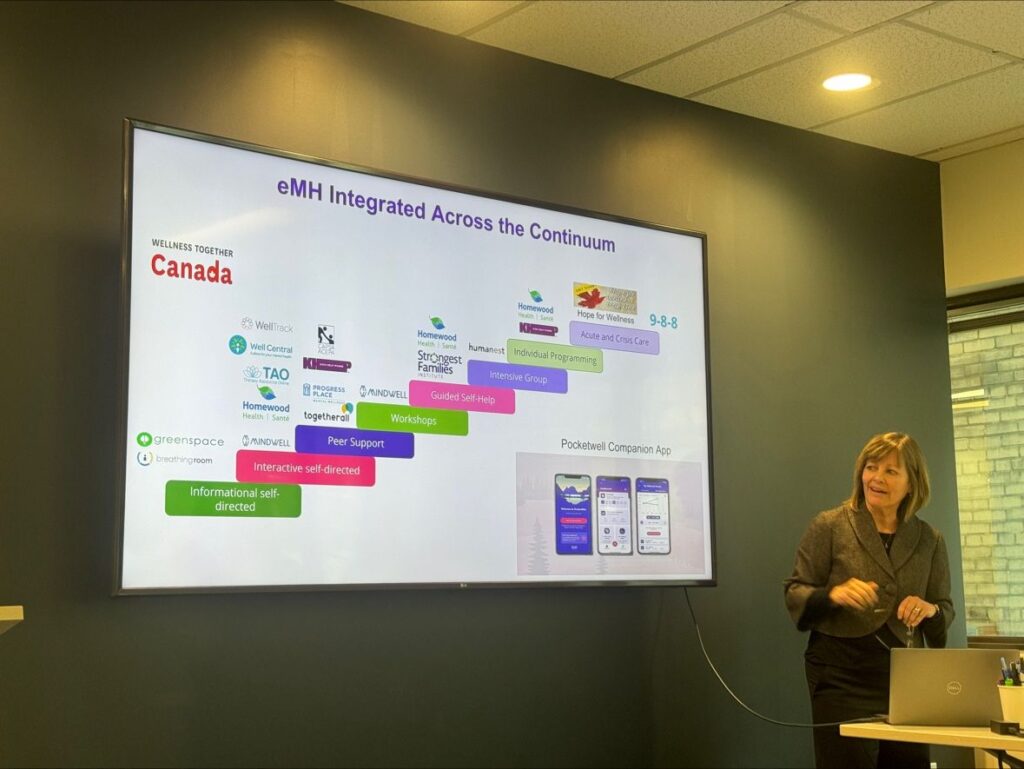
Many Provinces and local health authorities across Canada and around the world, are moving proactively on practical opportunities for integrating eMental Health solutions into the wider ecosystem of mental health and psychosocial support services. They are exploring innovative online solutions for bridging gaps in capacity and access to services to support remote and rural communities with limited access to care.
It was exciting to see the maturity of the conversations from the experts across the entire ecosystem of digital mental health with the sole purpose of improving access to mental health care, support and treatment.
